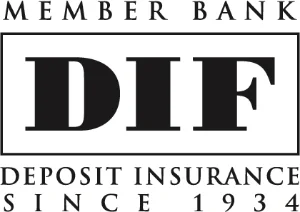 A colleague recently told me that she asked her doctor at her annual physical which Coronavirus numbers she could watch to get an idea if things were getting better. He said, “You mean, what are the important numbers?”
A colleague recently told me that she asked her doctor at her annual physical which Coronavirus numbers she could watch to get an idea if things were getting better. He said, “You mean, what are the important numbers?”
That got me thinking about what the “important numbers” are in personal finance. The ones that matter. The ones you really do not want to “tune out” on. Knowing your important numbers is a key part of Financial Fitness. While there is no one-size-fits-all, here are a few to consider.
Some individuals get obsessed with the Dow, feeling giddy if it closes up and discouraged if it’s down. But for most people with 401(k) retirement accounts in mutual funds (which is probably most people), the important numbers are A) your age and B) the amounts of your other income and assets.
Conventional wisdom has always been that younger people have time to recover from market corrections and older people should start transitioning out of market-based investments.
But older people may have other income and assets that could give them leeway to stay in the market. Some want the growth. Others don’t want the risk. That balance is something every individual needs to consider very carefully and only you can decide what’s right for you. Except for truly unusual circumstances, making those decisions has nothing to do with where the Dow closed today.
Another important number is how much you’re likely to owe in taxes. So many people regularly get blindsided by taxes. Withholding makes things much simpler for employees, obviously. But taxes are everywhere and there isn’t withholding for most of them – things like side gig taxes, real estate taxes, excise taxes, 401(k) withdrawal taxes and taxes on unemployment benefits, to name just a few.
(Because of the Coronavirus, millions have received significant amounts in unemployment benefits. Unemployment benefits are taxable. Many are expecting those taxes will be forgiven this time. If it happens, that’s great. But if the taxes are not forgiven, a lot of people are going to be in for an unhappy surprise. Because of the nature of 2020’s enhanced unemployment benefits, some may even unexpectedly be in a higher tax bracket. They may owe more!)
No one likes paying taxes. But having a good idea of how much you’re likely to owe and setting that money aside in a separate savings account is infinitely better than getting deeper and deeper into debt to pay taxes.
A last example: Because of the COVID, in 2020 people were allowed to make penalty-free early withdrawals from their 401(k)s. One woman told me she took a withdrawal to buy a much-needed new car. She urged her sister to do the same since her sister needed a car too. But though the 401(k) withdrawal would be penalty-free, it would inflate her sister’s taxable income fairly significantly – hurting her family’s chances for getting college financial aid and also increasing their tax bill. Another balancing act where other important numbers were part of the bigger picture.
The very best person to help you focus on your important numbers? A Certified Public Accountant (CPA). People who have a relationship with a CPA love working with an independent, objective, trained and state-licensed financial professional who can see their big picture and be there when the Internet lets them down. (Which happens in various ways all the time.) It’s not just about tax-filing, by any means.
Two do-able Financial Fitness goals for 2021:
1) Determine your own “important numbers” and keep an eye on them.
2) If you don’t have a CPA that you like and trust, start looking for one.
Nick Maffeo is the President & CEO of Canton Co-operative Bank in Canton. Have a question? Email to info@cantoncoopbank.com.


